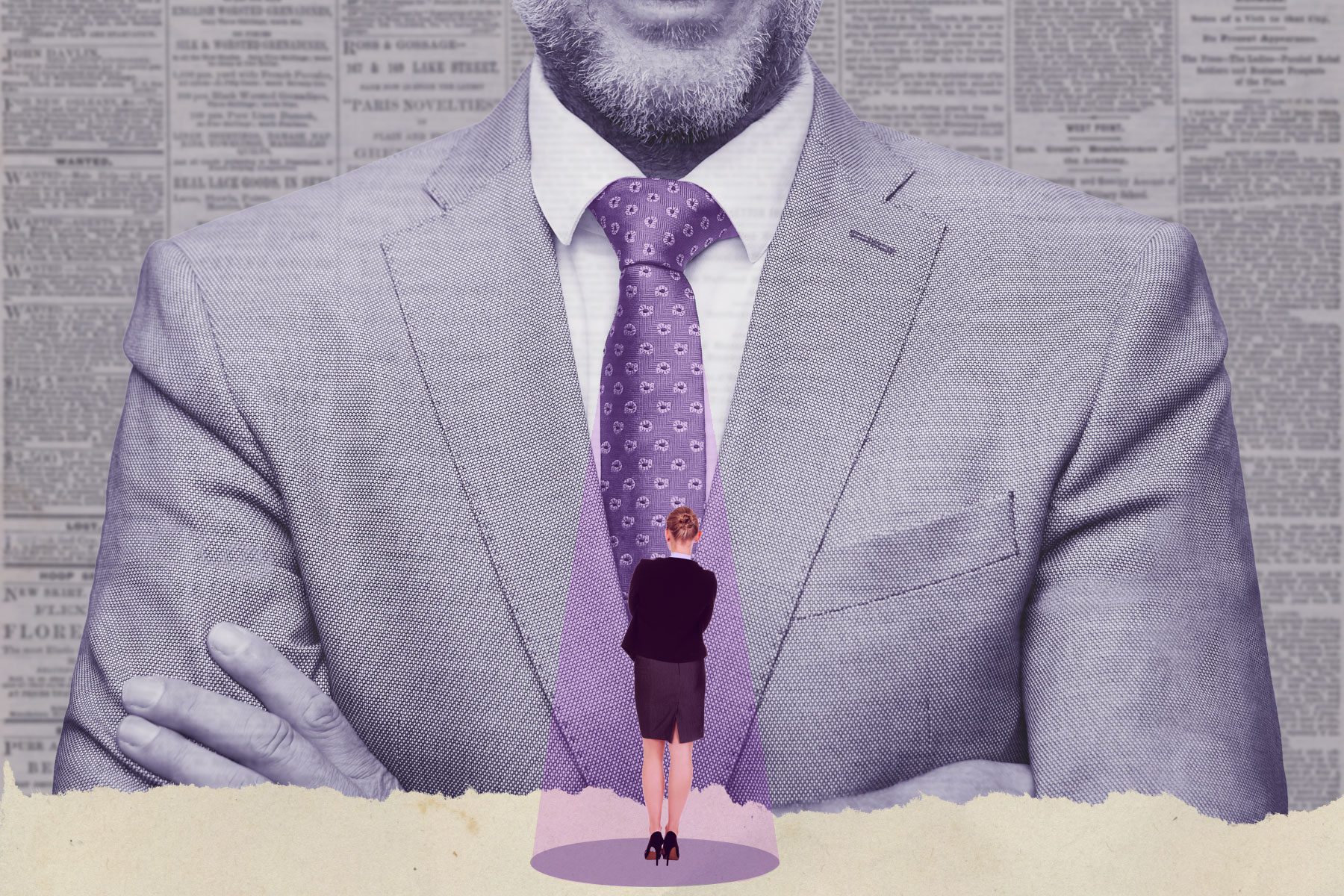Felicia Sonmez was a political reporter at the Washington Post expecting to cover an explosive story on her beat — sexual assault allegations against then-Supreme Court nominee Brett Kavanaugh — when top editors told her she couldn’t. One reason managing editor Cameron Barr gave her, Sonmez recounts in a lawsuit against her employer, is that her previous public statements on her own sexual assault equated to having “taken a side on the issue.”
Sonmez’s accusations — that the Post punished her and derailed her career because she came forward about a 2017 sexual assault — point to a broader problem, experts and survivors say: that newsrooms are failing to protect and defend women journalists who are already at risk.
“Whether it’s in the newsroom or outside of the newsroom, I think you would be hard pressed to find a woman reporter who has not experienced” harassment or assault, said Elisa Lees Muñoz, executive director of the International Women’s Media Foundation (IWMF). “The fact that you haven’t experienced it doesn’t mean it doesn’t exist. The fact that you haven’t experienced it means that you’re really lucky, because most women have.”
The CDC found in 2015 that nearly 1 in 5 women experience rape or attempted rape at some point in their lives. The IWMF’s most recent report found that 58 percent of women journalists surveyed in 2018 reported being generally threatened or harassed in person.
Tulika Bose, an associate producer at Mashable, said she chose to speak out about her own assault — which occurred in 2015 while she was freelancing in Nepal — “in hopes that other people do the same … that more women are out.” She called what Sonmez laid out in her lawsuit “horrific.”
“If you look at the fact that 1 in 5 women are assaulted and you look at how many reporters there are — there are a lot of us,” Bose said. “It’s just that not everyone is talking about it.”
The Washington Post declined to comment.
Sonmez, who declined an interview request, said in an emailed statement that survivors of sexual assault “should never have to fear that they will be punished, silenced or barred from doing their jobs because of what was done to them.”
She said what happened to her sends a “chilling message to all female journalists: Stay silent about your assault, or your career is on the line.”
Alex Stuckey, a Houston Chronicle investigative reporter who won a Pulitzer prize for examining mishandled sexual assault reports at Utah colleges, said in a tweet that the Post’s handling of Sonmez’s allegations are “what I feared FOR YEARS would happen to me at papers if I disclosed my assault.”
While at The Salt Lake Tribune, working on the team that won the Pulitzer in 2017 for investigating rape on college campus, Stuckey said she was terrified to tell anyone that she was a sexual assault survivor and that she was struggling, for fear of getting fired or taken off the story.
“So I didn’t get the help that I needed. That was a very traumatic time for me,” Stuckey said, recounting how she would cry in the bathroom and in her car while dealing with the emotional toll. She didn’t feel like she could ask for help, she said.
“Watching this happen to [Sonmez], I was like — you know, I was right,” Stuckey said.
Stuckey said blowback against the Post for its decision to bar Sonmez from covering sexual harassment gave her the courage to publicly share her experience of assault, which she says happened 10 years ago. In an essay for the Houston Chronicle published in June, Stuckey wrote: “Do people understand that the pain of not being believed — of being questioned — is almost as agonizing as the assault itself?”
Stuckey said that newsrooms including perspectives from sexual assault survivors is necessary, just as employing journalists from diverse backgrounds is crucial to comprehensively covering more communities.
“As a survivor, I bring a perspective that’s important. I know how to approach victims because I’ve been a victim,” she said. “Just because this happened to us doesn’t mean we don’t know how to do basic journalism.”
Bose said an October 2020 story she wrote about two women who allegedly experienced a mutual ex sharing intimate photos of them without their consent is an example of how her lived experience made her coverage possible — and improved it.
“That was actually given to me because I am an assault survivor and I was open about it,” she said. “That is the reason I got the story.”
Bose said she didn’t withhold her assault experience from employers, including when she interviewed for her current position at Mashable.
“If someone didn’t want to hire me because of that, good for them,” she said. “I’m very proud to have survived. And I’m very proud of the reporter that it made me.”
Sonmez alleges in her lawsuit against the Post that former and current top editors stifled her career growth, failed to protect her from online threats, and behaved as though her own reported experience of sexual assault made her too biased to cover the #MeToo movement or sexual harassment of any kind via two coverage bans.
In the lawsuit, filed July 21, Sonmez says she experienced severe depression and anxiety at her situation, and humiliation at having to repeatedly disclose her reported assault to colleagues.
She also claims her editors prioritized protecting the Post against perceived bias over protecting her from online harassment, which included rape and death threats.
The IWMF’s Muñoz said she believes media organizations have made some progress in addressing women journalists’ general safety, based on companies who ask her organization for resources and training. But she said women still ultimately aren’t protected.
Women journalists are experiencing more online violence now than ever before, a UNESCO research discussion paper published in April found. Hundreds of women reporters who responded to the UNESCO survey — 73% of the total number polled — said they had experienced online violence, with sexual violence and death threats frequently cited. Most women journalists who reported the harassment said employers’ top responses were either no response, or advice to “grow a thicker skin” or “toughen up.”
“They’re not protected in their newsrooms. They’re not protected from within the newsroom, they’re not protected against online harassment,” Muñoz said.
Muñoz said inhibitors to newsrooms adequately addressing women journalists’ safety include costs — for recurring trainings, for security, for personal protective equipment like gloves, flak jackets or goggles. But often, she said, newsrooms are reluctant to change because admitting an incident occurred can open the news organization up to legal consequences, or because a star reporter is the one accused of wrongdoing.
A lack of diversity in newsroom management, and more women and people of color leading newsrooms, would help better protect journalists, she said.
“I just think that the media industry has a long way to go,” Muñoz said.
In addition to adding more women to top leadership positions, newsrooms should create pathways to report abuse or discrimination away from immediate management and supervisors, Muñoz said. Intentional or not, she said, retribution is happening.
“I even think that sometimes editors or managing editors think that they’re protecting women,” she said. “‘Oh, we can’t send you on this beat because it’s really dangerous.’ And, ‘This has happened to you before; we don’t want you to be harmed again.’”
Stuckey said she believes Sonmez speaking publicly about her experiences will encourage more newsrooms to put their journalists first — and to do it the right way.
“Regardless of what happens with the lawsuit, the fact that there is a lawsuit, the fact that she was brave enough to do this, it will make other news organizations think twice before they do something like that to one of their reporters,” she said.







